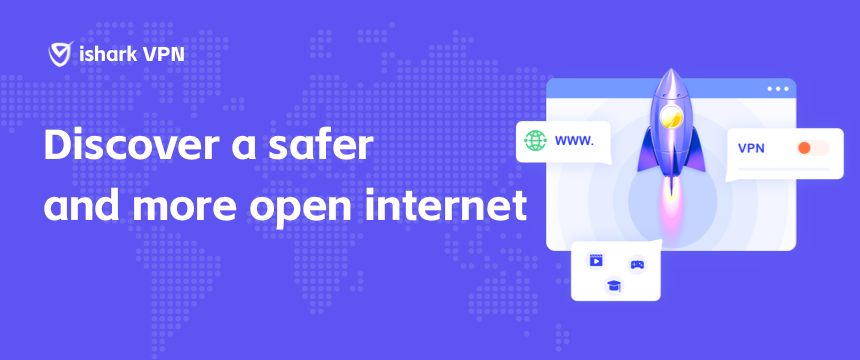VPN and Cybersecurity Threats: Addressing the Growing Complexity of Network Attacks
ishark blog article
In today's digital age, the number and complexity of cybersecurity threats continue to increase. From data breaches and ransomware attacks to phishing and identity theft, individuals and organizations face numerous risks.
As cybercriminals constantly improve their attack strategies, Virtual Private Networks (VPN) play a crucial role in countering malicious activities.
This article will delve into how VPN address the evolving network threats and protect users' privacy and data security.

Understanding Cybersecurity Threats:
Types of Network Attacks: Cyber threats encompass various types of attacks, including:
Data Breaches: Hackers gain unauthorized access to sensitive information and expose individuals' privacy and compromise corporate reputation.
Ransomware: Attackers encrypt victims' data and demand ransom for its restoration.
Phishing: Deceptive websites or emails trick users into disclosing personal information or credentials.
Trojans and Viruses: Malware infects systems and steals sensitive information.
DDoS Attacks: Large-scale requests overload target servers, causing them to become unresponsive.
Identity Theft: Stolen personal information is used for fraud and illegal activities.
Evolution of Threats: Cyber threats constantly evolve, with attackers adopting new technologies and tactics to evade traditional security measures.
With the widespread use of the Internet of Things (IoT) and cloud computing, the attack surface has expanded, presenting more severe security challenges.
The Role of VPN in Cybersecurity:
Data Encryption Protection: VPN use encrypted tunnels to secure users' data, making it challenging for hackers to intercept information during transmission. Even if the data is intercepted, it remains unreadable.
Anonymity and Privacy Protection: VPN conceal users' real IP addresses, enhancing their anonymity on the internet. This helps prevent network tracking and monitoring, bolstering users' privacy protection.
Bypassing Geographic Restrictions: Some cyber attacks may be region-specific, leveraging geographical locations to execute. VPN enable users to bypass these restrictions and access content and services otherwise limited.
Preventing Data Leaks: By using VPN, users can encrypt their internet connections, preventing the risk of sensitive information leaks while using unsecured public Wi-Fi networks.
DDoS Attack Mitigation: Certain VPN providers employ distributed server architectures, mitigating the impact of DDoS attacks and ensuring the availability of network services.
Limitations of VPN:
Despite playing a critical role in cybersecurity, VPN still have some limitations, such as:
Malicious VPN Providers: Untrustworthy VPN providers may steal user data or offer insecure services, emphasizing the importance of selecting reputable suppliers.
DNS Leaks: Some VPN may experience DNS leaks, revealing users' real IP addresses and compromising privacy protection.
Outdated Encryption Algorithms: Some VPN use outdated or insecure encryption algorithms, making them vulnerable to attacks.

Conclusion:
VPN play a significant role in addressing the growing complexity of cybersecurity threats. Through data encryption protection, anonymity, bypassing geographic restrictions, and prevention of data leaks, VPN offer robust network security.
However, users should exercise caution in selecting trustworthy VPN providers and regularly update their VPN software to ensure continuous high-level security.









